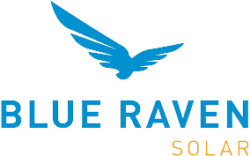Benefits of Solar Energy
Solar energy provides several advantages that will enhance your home for years to come.
- Lower energy bills: Sourcing some or all of your own power will cut power costs long-term. Plus, some states provide net metering programs that allow you to sell your unused energy back to the grid, generating extra credits toward your energy bill.
- Better energy independence: Solar energy can keep your home powered through blackouts and emergencies, giving you additional security. You can use your solar energy anytime with an optional battery storage system.
- Reduced carbon footprint: Solar is a highly abundant clean energy source, meaning you can lower or beat your home's dependence on non-renewable sources.
What Solar Incentives Are Available to McKinney Homeowners?
Texas agencies and electric companies offer numerous solar incentives to help reduce your solar system costs. Here's a breakdown of eligible solar programs where you live.
Incentive Type: Property Tax Incentive
Website: comptroller.texas.govIncentive Amount:
100%
Incentive Type: Rebate Program
Website: texasgasservice.comIncentive Amount:
Free Equipment Program: Free appliance installation and weatherization services
Home Improvement (includes attic insulation, duct sealing, duct insulation, duct replacement, high-efficiency gas furnace, and Wi-Fi thermostat: Up to $1000
Solar Water Heater With Natural Gas Backup: $750
Tankless or Super High-efficiency Water Heater: $650
Furnace: $675
Furnace Tune-Up: $40
Natural Gas Dryer with moisture sensor: $225
Natural Gas Dryer Stub: $300
Incentive Type: Rebate Program
Website: support.coserv.comIncentive Amount:
Rebates tiered based on kW installed
Incentive Type: Personal Tax Credit
Website: ecowatch.comIncentive Amount:
30% federal tax credit for systems placed in service after 12/31/2021 and before 01/01/2033. Good for: solar water heat, solar photovoltaics, biomass, geothermal heat pumps, wind (small), fuel cells using renewable fuels.
How To Choose the Best Solar Company in McKinney
Choosing a company is the first step toward an effective and valuable solar array. Make your choice based on the following crucial aspects.
Licensing and Training
All solar installers in Texas must have a state electrical contractors' license from the Texas Department of Licensing and Regulation. The Texas State Board of Plumbing Examiners regulates plumbing regulations and licensing standards for solar thermal installers. Solar installers can also earn certificates from trade groups and standards organizations. The most prestigious ones in the industry come from the North American Board of Certified Energy Practitioners. Most company websites will prominently display earned credentials, but you should also ask your estimator for more information.
Cost of Solar Panels in McKinney
Your solar modules' type will impact how much electricity you can produce. Monocrystalline panels are among the highest quality and cost the most but perform the best. Polycrystalline panels generate less, but they're a great traditional option for low budgets. Thin-film panels have a low cost and are excellent for non-traditional roofs, but aren't recommended for large home installations.
If you want to charge an electric car or use your solar power in cloudy weather, you can pay extra for accessories. By selecting the right components, you can make your panel array more effective and convenient to use. Not all solar companies offer these optional components, so look for a company that installs them if it's crucial for you.
Generally speaking, it costs about $16,650 for a five-kilowatt solar array in McKinney. This table lists more specific costs for different solar panel types and system components in your area.
| Solar Panel Cost | Average Cost |
|---|---|
| Solar Monocrystalline | $1,206 |
| Solar Polycrystalline | $941 |
| Thin-Film | $550 |
| Solar Battery | $772 |
| Solar Home EV Charger | $2,895 |
Financing Solar Energy in McKinney
Solar contractors use multiple different financing options to increase your savings and lower your costs. Though some providers offer unique payment plans, the most common are solar loans, cash payments, power purchase agreements (PPAs) and solar leases. We advise making a cash payment or using a solar loan for the highest return on investment (ROI). Cash payments require a hefty sum up-front, but you’ll pay the least long-term by avoiding interest. You’ll also have full ownership of your system and can apply for solar panel incentives to reduce your total costs. Solar loans are another solid option if you don’t want to make a big initial investment. You can pay for your system in monthly installments while still benefiting from energy bill savings and solar incentives. However, you’ll spend more in total due to accruing interest. Solar leases involve paying a set monthly rate to use rooftop panels. A PPA (Power Purchase Agreement) enables you to pay a monthly rate determined by the energy you use, similar to an electric bill. We generally don’t recommend these two options because you won't own the solar system and cannot use solar incentives. Ask each company you're considering about the financing options it offers. A team member can help you determine the most suitable option for your budget.
The table below lists the average payback periods for different capacities of solar systems in McKinney.
You can claim a 26% federal solar tax credit from the IRS for new residential solar systems purchased before 2032. Additionally, local governments and utilities may have their own rebates and financing plans that could reduce your total cost even more.
| Solar System Capacity | Estimated Payback period |
|---|---|
| 1 kW | 2.1 years |
| 2 kW | 4.2 years |
| 5 kW | 10.6 years |
| 10 kW | 21.2 years |
Ready to Get a Quote on Your Solar Project?
Please enter a valid 5-digit zip code!
Frequently Asked Questions About Solar in McKinney
How much energy and money could I save per year by switching to solar?
How popular is solar energy in McKinney?
Will solar panels improve my McKinney home worth?
What can I do to assess my home's solar potential?
How long is a McKinney solar panel's average lifespan?
What size should my new McKinney solar system be?
How can I boost my solar array's performance?
- optimize the panels' position with your solar installer
- regularly clean your solar panels
- upgrade to a more efficient inverter trim or cut down trees in the way of your panels
- use energy-efficient appliances
How many estimates should I get before making a final solar company decision?
To share feedback or ask a question about this article, send a note to our Reviews Team at reviewsteam@thisoldhousereviews.com.


















